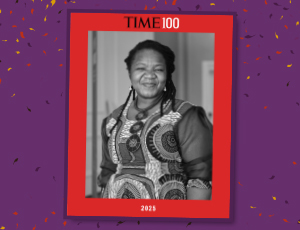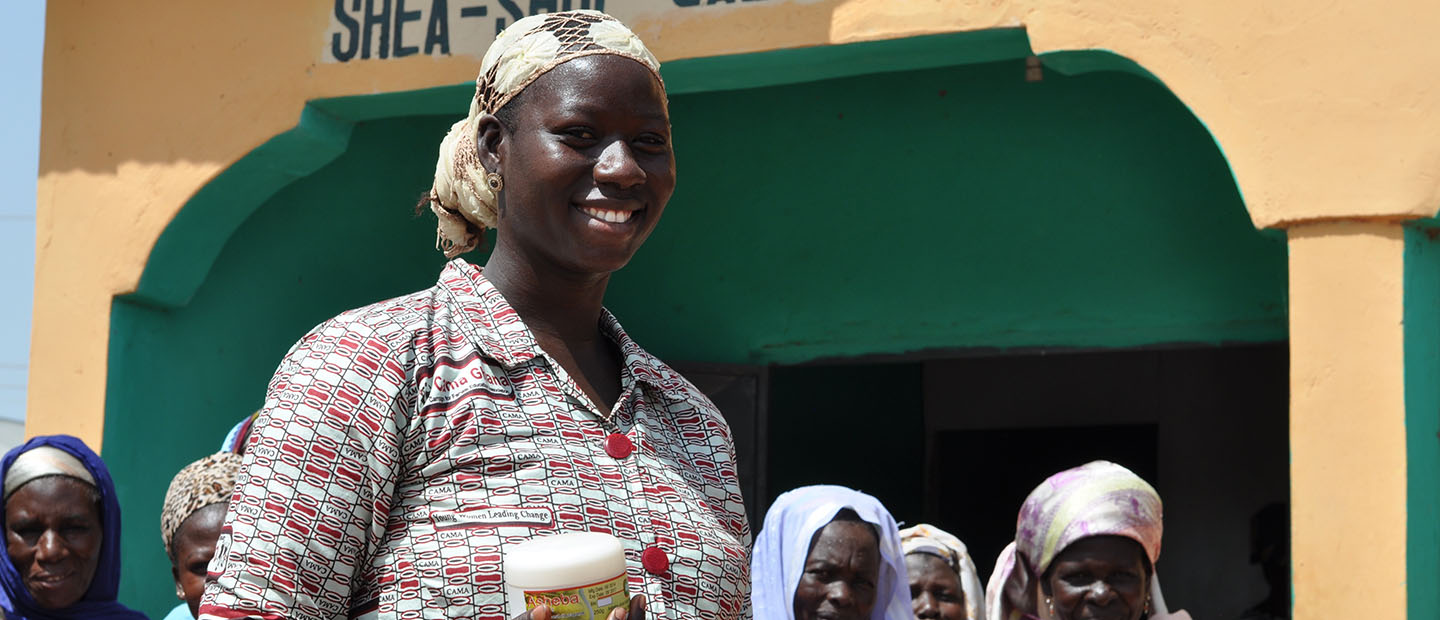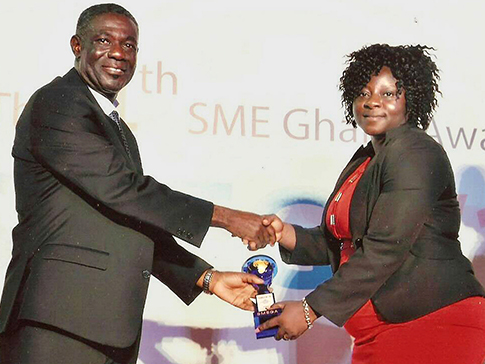
TIME100 Most Influential People
CAMFED CEO, Angeline Murimirwa, named to TIME’s list of the world’s 100 most influential people.


According to the World Economic Forum’s 2017 Global Gender Gap Report, gender parity is more than 200 years away. And a report released by UN Women on 14 February, assessing our Sustainable Development Goal for Gender Equality, found pervasive discrimination against women and girls. But this March, let’s think instead about our progress.
CAMFED has had cause for celebration recently, as two alumnae of our youth enterprise initiative with the Mastercard Foundation have won national awards in Ghana for their business innovations in shea butter and moringa processing. (Read the full story here). Growing up in marginalised, rural communities Ayisha Fuseini and Esther Naanbir could so easily have faced the same fate as many of the country’s youth who are affected by high rates of unemployment. But after training, mentoring and hard work they are both successful female entrepreneurs, selling their cosmetic products in Ghana and beyond.
What is particularly inspiring about these two young women is their determination to do well not only for themselves but for their communities. Both Ayisha and Esther now employ several women, creating vital job opportunities in areas where they are scare.
Ayisha works with over 200 women from economically challenged rural backgrounds, grouped into cooperatives. She is helping them to identify markets and secure fair prices for their produce. She also provides training in financial literacy and has even set up a primary school for the children of her employees.
Now seen as a pillar of the community, Ayisha was asked to get involved in local politics.
Ayisha Fuseini’s shea butter processing business creates opportunities and change for women in rural Ghana
These young women are making history, pioneering a new role for women in rural societies. CAMFED’s vision is to see this happening for girls everywhere. Equip them with education and training, ensure a successful transition from school into employment, and we will have generations of women who are economically independent, who step into leadership positions and who create a ripple effect of change for those around them.
Within CAMA, the CAMFED alumnae network, we are already seeing the powerful outcomes of girls’ education. This group of young women, now nearly 120,000 strong, is made up of doctors, lawyers, teachers, advocates and UN youth representatives. And standing proudly amongst them are a wealth of female entrepreneurs – to date CAMA members have founded over 16,797 rural businesses, responding to the gaps in their local economies.

Esther Naanbir, Founder of Agape Moringa Processing, accepts her award for Woman of the Year at the Vodafone Small and Medium Enterprises Ghana Awards
Entire nations can reap the rewards of educating girls, to unlock the tremendous potential that the otherwise marginalised female population can contribute to their communities and economies. By enabling more women to start businesses and become economically independent, we can reduce poverty, ensure more children are in school, and make a decisive step towards equality by dismantling gender stereotypes.
Young women like Ayisha and Esther are the compelling evidence that this really works. So during Women’s History Month let’s not be daunted by the long journey to gender equality, but let’s set in motion the small changes that can have lasting consequences. The path to progress, lies in ensuring that girls can complete their education and find meaningful employment. Do this, and they will be the change.
Sources:
1. ‘Press release: New UN Women report uncovers significant gaps for women’s empowerment and puts forth robust agenda to shift gears’ – UN Women [online]. Available at: https://www.unwomen.org/en/news/stories/2018/2/press-release-launch-of-sdg-monitoring-report-gender-equality-in-the-2030-agenda [Accessed on 13 Mar. 2018].
2. ‘The Global Gender Gap Report 2017’ – World Economic Forum [online]. Available at: https://www.weforum.org/reports/the-global-gender-gap-report-2017 [Accessed on 13 Mar. 2018].
Georgia Scarisbrick £175
Maryann Barkus $14
Pavur Sundaresan $316
Robert Lauck $27.7
Aann Golemac $10.9
Stephanie Boudreau $42.4
David Clifton $158
Cynthia Daneshfar $10.9
William Rutcosky $400
Kaisi Liu $6.7
ANN KINCAID $526
Nickey Hagman $29.8
Wendy Luo $158
Nina Hamilton $158
Corteria Baxter $42.4